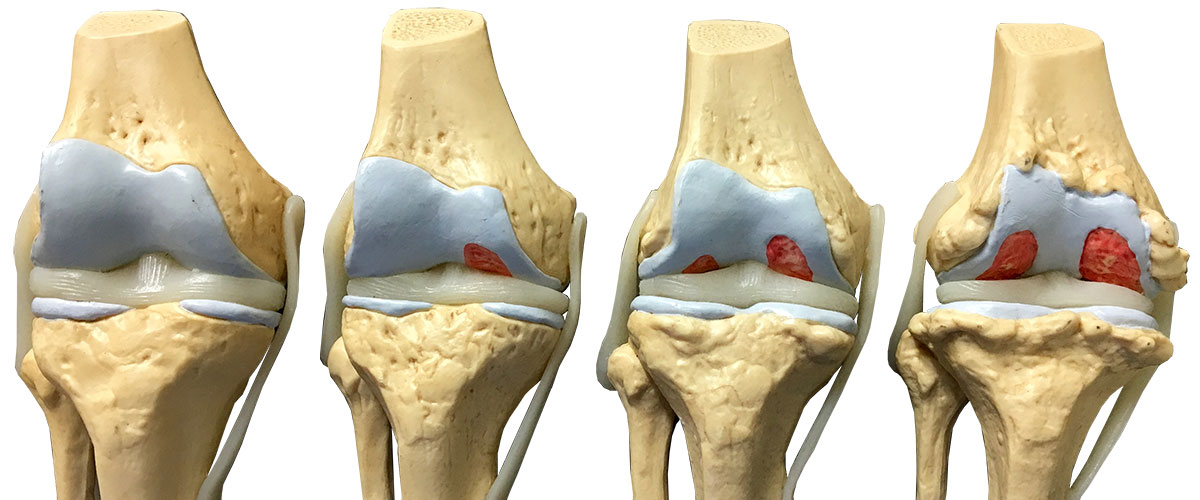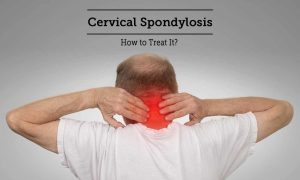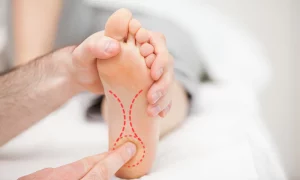Knee arthritis is a prevalent condition causing pain, stiffness, and swelling in the knee joints. Affecting millions globally, it significantly impacts mobility and quality of life. Understanding its types, risk factors, symptoms, and treatments can help manage and alleviate its effects.
Types of Knee Arthritis
Osteoarthritis (OA):
- Most common type.
- Caused by cartilage wear and tear.
- Leads to bones rubbing against each other, causing pain and stiffness.
Post-Traumatic Arthritis:
- Follows knee injuries.
- Similar to OA but results from trauma like sports injuries or accidents.
Rheumatoid Arthritis (RA):
- Autoimmune disease.
- The immune system attacks the joints, causing inflammation and damage.
Risk Factors
- Age: Higher risk after 50.
- Gender: More common in women.
- Obesity: Excess weight adds stress to knee joints.
- Injuries: Previous knee injuries can lead to arthritis.
- Genetics: Family history increases susceptibility.
- Lifestyle: Smoking and repetitive knee stress are contributing factors.
Symptoms
- Pain and Swelling: Persistent pain and swelling in the knee.
- Stiffness: Difficulty moving the knee, especially after inactivity.
- Creaking or Clicking: Sounds from the knee during movement.
- Decreased Mobility: Challenges in walking, climbing stairs, and other activities.
- Warmth: The affected area may feel warm to the touch.
Stages of Knee Osteoarthritis
- Stage 0 (Normal): No signs of arthritis.
- Stage 1 (Minor): Slight wear and tear with minimal pain.
- Stage 2 (Mild): Noticeable pain and stiffness.
- Stage 3 (Moderate): Increased pain, especially during movement.
- Stage 4 (Severe): Severe pain and immobility, often requiring surgery.
Treatment Options
Preventive Measures:
- Weight Management: Maintain a healthy weight to reduce knee stress.
- Low-Impact Exercise: Activities like swimming and cycling to keep joints flexible.
- Proper Footwear: Use shock-absorbing inserts.
- Heat Application: Apply heat to alleviate pain.
- Knee Braces: Support the knee joint.
- Physical Therapy: Exercises to enhance strength and flexibility.
Medical Treatments:
- Medications: Pain relievers and anti-inflammatory drugs.
- Topical Creams: Local application to reduce pain.
Non-Surgical Interventions:
- Platelet-Rich Plasma (PRP): Injections promoting cartilage repair.
- Viscosupplementation: Hyaluronic acid injections for lubrication.
- Radiofrequency Ablation: Targeting pain-carrying nerves to reduce pain.
Surgical Options:
- Arthroscopy: Minimally invasive surgery to repair joint damage.
- Osteotomy: Bone realignment to reduce pressure on the knee.
- Joint Replacement: Partial or total knee replacement for severe cases.
Finding a Specialist
Consulting a joint arthritis specialist is crucial for personalized treatment plans. Specialists at the Neuron Pain Clinic offer comprehensive care, from diagnosis to advanced treatment options, ensuring the best possible outcomes for patients.
For more information, visit the Neuron Pain Clinic.




